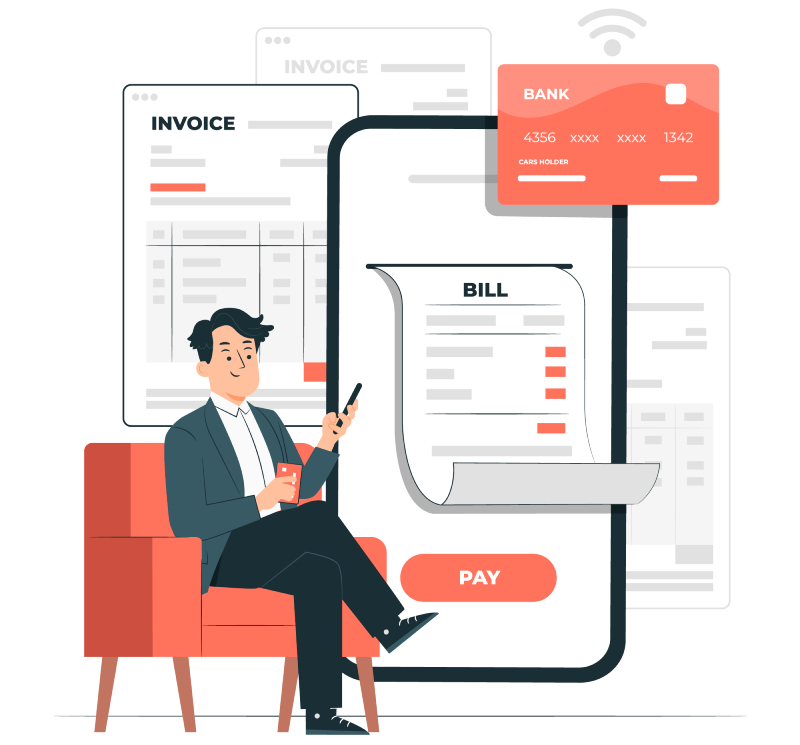The Importance of Accounting and Billing Software for Small Business
The Importance of Accounting and Billing Software for Small Business
In Accounting and Billing Software, the efficiency of financial processes can significantly influence an organization overall performance. Streamlining these processes involves the adoption of best practices and technologies that reduce redundancy, minimize errors, and enhance speed. For instance, automating routine tasks such as data entry and reconciliation can free up valuable time for finance teams, allowing them to focus on strategic initiatives rather than mundane administrative duties.
By implementing Accounting and Billing Software that integrate various financial functions, businesses can create a seamless workflow that enhances productivity and reduces the likelihood of human error. Moreover, streamlining financial processes often requires a thorough analysis of existing workflows to identify bottlenecks and inefficiencies. This might involve mapping out the entire financial cycle—from budgeting and forecasting to reporting and compliance—to pinpoint areas for improvement.
Small business owners can save time and avoid late payments using the best billing software. With features like professional invoices, time tracking, recurring invoices, and online payments, tools like QuickBooks Online make the billing process easy. Client portals, payment reminders, and strong customer service help manage billable hours and paid plans smoothly. Havteq – Trusted Accounting and Billing Software Provider in India.
Key Takeaways
- Streamlining financial processes is essential for improving efficiency and productivity in business operations.
- Organizing and tracking expenses helps in managing cash flow and making informed financial decisions.
- Managing invoices and payments efficiently is crucial for maintaining healthy cash flow and ensuring timely payments.
- Improving cash flow management is vital for sustaining business operations and supporting growth and scalability.
- Generating financial reports accurately and in a timely manner is essential for facilitating decision making and ensuring compliance with regulations.
Benefits of Accounting and Billing Software to Small Businesses.
-
Informing Future Financial Decisions
This real-time tracking can also facilitate better forecasting and budgeting, as businesses gain insights into their spending habits over time. By analyzing historical data, companies can identify trends and make informed decisions about future expenditures, ultimately leading to more effective financial planning.

-
Managing Invoices and Payments
The management of invoices and payments is a fundamental component of any business’s financial operations. An efficient invoicing system not only ensures timely payments but also enhances cash flow management. Businesses can adopt automated invoicing solutions that generate invoices based on predefined templates and send them directly to clients via email.
This automation reduces the time spent on manual invoice creation and minimizes the risk of errors that can lead to payment disputes. Furthermore, implementing a systematic approach to payment processing is essential for maintaining positive relationships with suppliers and vendors. Organizations should establish clear payment terms and utilize electronic payment methods to expedite transactions.
-
Improving Cash Flow Management
Cash flow management is a critical aspect of financial health that requires constant attention and strategic planning. Effective cash flow management involves monitoring the inflow and outflow of cash to ensure that a business can meet its obligations while also investing in growth opportunities. One effective strategy is to create a cash flow forecast that projects future cash inflows and outflows based on historical data and anticipated changes in the business environment.
To improve cash flow management, businesses can also implement strategies such as optimizing inventory levels and negotiating favorable payment terms with suppliers. For instance, by adopting just-in-time inventory practices, companies can reduce holding costs and free up cash that would otherwise be tied up in excess stock. To know more about Accounting and Billing Software contact havteq Solutions.

-
Generating Financial Reports
Financial reporting is an essential function that provides stakeholders with insights into a company’s performance and financial health. Generating accurate and timely financial reports requires a robust accounting system that consolidates data from various sources. Businesses can utilize financial reporting software that automates the generation of key reports such as income statements, balance sheets, and cash flow statements.
This automation not only saves time but also enhances accuracy by reducing the risk of manual data entry errors. Moreover, the ability to generate customized reports tailored to specific business needs is invaluable for decision-making.

-
Ensuring Accuracy and Compliance
Accuracy in financial reporting is paramount for maintaining trust with stakeholders and ensuring compliance with regulatory requirements. Businesses must implement rigorous internal controls to safeguard against errors and fraud. This includes establishing clear procedures for data entry, reconciliation, and approval processes.
Utilizing compliance management software can assist in tracking regulatory changes and ensuring that all financial practices align with current laws. By prioritizing accuracy and compliance, businesses can mitigate risks associated with financial misreporting or regulatory penalties.
-
Enhancing Efficiency and Productivity
Enhancing efficiency within financial operations is essential for maximizing productivity across the organization. One effective approach is to leverage technology to automate repetitive tasks such as data entry, invoice processing, and report generation. By reducing the manual workload on finance teams, organizations can allocate resources more effectively toward strategic initiatives that drive growth.
Additionally, fostering a culture of continuous improvement within the finance department can lead to enhanced efficiency. Encouraging team members to identify pain points in existing processes allows for collaborative problem-solving and innovation.

-
Facilitating Decision Making
Accounting and Billing Software
Financial data serves as a foundation for informed decision-making within an organization. The ability to analyze financial metrics in real-time empowers leaders to make strategic choices that align with business objectives. For example, having access to up-to-date sales figures allows management to adjust marketing strategies or inventory levels promptly based on current demand.
Moreover, integrating financial data with other business intelligence tools enhances decision-making capabilities further. By combining financial metrics with operational data—such as customer satisfaction scores or production efficiency—organizations can gain a holistic view of performance. This comprehensive analysis enables leaders to identify correlations between different aspects of the business, leading to more nuanced insights and better-informed decisions.
-
Integrating with Other Business Systems
Integration between financial systems and other business applications is crucial for creating a cohesive operational environment. When financial software seamlessly connects with systems such as customer relationship management (CRM), Enterprise Resource Planning (ERP), or supply chain management tools, organizations can achieve greater visibility across departments. This integration eliminates data silos and ensures that all teams are working with consistent information.
For instance, integrating accounting software with CRM systems allows sales teams to access real-time financial data when negotiating contracts or setting pricing strategies. This alignment fosters collaboration between departments and enhances overall efficiency by reducing the need for manual data transfers or reconciliations. Additionally, integrated systems enable automated workflows that streamline processes such as order fulfillment or expense approvals, further enhancing operational efficiency.
-
Providing Data Security and Backup
In an era where data breaches are increasingly common, ensuring data security is paramount for any organization handling sensitive financial information. Implementing robust security measures—such as encryption, multi-factor authentication, and regular security audits—can help protect against unauthorized access to financial systems. Additionally, training employees on best practices for data security is essential in fostering a culture of vigilance within the organization.
Regular data backups are equally important for safeguarding against data loss due to system failures or cyberattacks. Businesses should establish a comprehensive backup strategy that includes both on-site and off-site storage solutions. Cloud-based backup services offer an effective way to ensure data redundancy while providing easy access for recovery when needed.
-
Supporting Business Growth and Scalability
As businesses evolve, their financial processes must adapt to support growth and scalability effectively. A flexible financial management system allows organizations to scale operations without compromising efficiency or accuracy. For instance, cloud-based accounting solutions enable businesses to easily add new users or integrate additional functionalities as they expand into new markets or product lines.
Moreover, having scalable financial processes facilitates quicker responses to market changes or opportunities for expansion. Organizations can implement modular systems that allow them to customize their financial operations based on specific needs without overhauling entire systems. This adaptability not only supports growth but also positions businesses to remain competitive in an ever-changing landscape by enabling them to pivot quickly in response to new challenges or opportunities.
Havteq provide the Best Accounting and Billing Software for Growing Businesses
FAQs
What is accounting and billing software?
Accounting and Billing Software is a type of application that helps businesses manage their financial transactions, invoicing, and other accounting tasks. It automates processes such as generating invoices, tracking expenses, and managing accounts payable and receivable.
Why is accounting and billing software important for small businesses?
Accounting and Billing Software is important for small businesses because it helps them streamline their financial processes, track their income and expenses, and ensure accurate and timely invoicing. It also provides valuable insights into the financial health of the business and helps in making informed decisions.
What are the benefits of using accounting and billing software for small businesses?
Some of the benefits of using Accounting and Billing Software for small businesses include improved accuracy in financial records, time savings in managing invoices and expenses, better cash flow management, and the ability to generate financial reports for analysis and decision-making.
What features should small businesses look for in accounting and billing software?
Small businesses should look for Accounting and Billing Software that offers features such as invoicing, expense tracking, financial reporting, integration with other business tools, and the ability to handle multiple payment methods. It should also be user-friendly and scalable to accommodate business growth.
How does accounting and billing software help in compliance and tax preparation for small businesses?
Accounting and Billing Software helps small businesses stay compliant with tax regulations by accurately recording financial transactions and providing the necessary documentation for tax preparation. It also simplifies the process of generating financial reports and statements required for tax filing.





